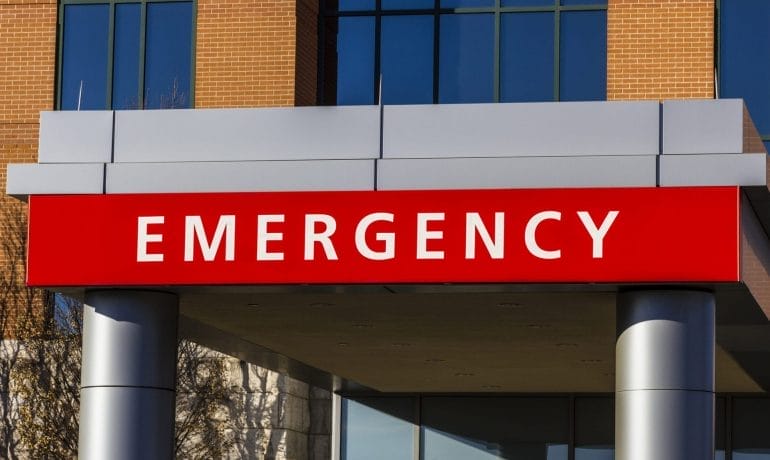When your little one takes a tumble or comes down with a sudden fever, your heart might skip a beat. It’s a situation no parent wants to find themselves in, yet it’s often an inevitable part of the rollercoaster that is parenting. You’re faced with an immediate decision – should you rush to the emergency room or is urgent care the more appropriate route?
Understanding when and where to seek urgent medical care for your child can be a confusing and stressful process, but armed with the right information, you’ll be well-equipped to handle these bumps in the road.
Let’s explore how to navigate pediatric emergencies, because knowing what to do in these crucial moments can make all the difference.
Understanding Pediatric Urgent Care
Often, as a parent, you may find yourself in situations where your child is unwell, and understanding the role of pediatric urgent care can be crucial in making the right health decisions for your child. Pediatric urgent care centers are specialized health care facilities that provide immediate, focused attention when your child falls ill with minor to moderate ailments.
These centers are equipped to handle a range of health issues. From common illnesses like the cold to more urgent situations such as minor fractures and sprains, Pediatric Care facilities can diagnose, prescribe medications, conduct physical exams, and even offer lab testing services. Understanding pediatric urgent care is about recognizing its efficiency and cost-effectiveness, as well as the child-friendly environment it provides for your child’s care.
Choosing between an ER and pediatric urgent care depends on the severity of your child’s symptoms. If the situation is life-threatening, an ER is the right option. However, for less severe ailments, pediatric urgent care centers are your go-to. They provide a comforting setting that’s designed for prompt attention, ensuring your child receives the best possible care.
Deciding: Urgent Care or ER?
When your child falls ill, it’s crucial to quickly and accurately decide whether Childrens Urgent Care or the ER is the right choice for their symptoms. This decision can be daunting, especially when your child experiences distress.
If your child has minor injuries like cuts or a simple ear infection, urgent care clinics are often the best option. They’re designed to provide immediate care for less severe ailments, offering a cost-effective and efficient alternative to the ER. Keep a first aid kit at home for these situations, but remember that a care provider at a clinic can give professional medical attention when it’s needed.
In contrast, if your child has severe trauma, difficulty breathing, or other life-threatening symptoms, the ER is the best choice. It’s designed for these critical situations, providing specialized care that urgent care clinics can’t offer.
In deciding: urgent care or ER?, consider the severity of your child’s symptoms. Use online tools to locate the nearest Childrens Urgent Care, ensuring prompt and convenient access when your child needs it. Remember, your child’s health is paramount, and making the right choice could make all the difference.
Evaluating Pediatric Urgent Care Services
Understanding your child’s needs and evaluating pediatric urgent care services is crucial in ensuring they receive the best possible care during an emergency. Your little one’s health is paramount, and choosing a reliable urgent care center can make all the difference.
When evaluating pediatric urgent care services, consider both the severity of your child’s symptoms and the proximity of the center. Do they offer comprehensive services like diagnosis, medication, and various treatments? Look for facilities that handle minor injuries, offer vaccinations, and have lab testing capabilities. Centers like Pediatrix Primary Urgent Care of Texas provide such comprehensive services, along with virtual consultations, in-house labs, and X-ray capabilities, ensuring high-quality care and seamless experiences for your child.
Healthcare professionals within urgent care centers play a vital role in your child’s health. Therefore, familiarize yourself with the nearest center and be prepared. Bring essential medical information about your child to expedite care.
In the end, your child’s well-being is the priority, and the right pediatric urgent care can provide the support you need in an emergency.
Pediatric Urgent Care and Insurance
Navigating the world of insurance as it pertains to pediatric urgent care can be a daunting task, but it’s essential to understand how your coverage works in these situations. Not all insurance plans cover urgent care visits in the same way, and it’s crucial to know your Childs Insurance details before an emergency arises.
The cost of care at a Pediatric Urgent Care Center is typically a fraction of what you’d pay at the ER, making it a more affordable option for minor to moderate ailments. However, the amount you’re responsible for depends largely on your insurance plan. It’s important to determine whether your child’s primary care provider is in-network with the urgent care center you select, as this can significantly impact the cost.
When you’re faced with a situation that requires urgent care for your child, you don’t want to be caught off guard by unexpected expenses. It’s recommended to call your insurance provider or visit their website to get the most accurate information about your coverage.
Handling Common Pediatric Emergencies
As a parent, you’re often the first line of defense in handling common pediatric emergencies, from breathing difficulties and high fevers to severe allergic reactions and fractures. Your child’s health is paramount, and understanding how to respond to these emergencies can significantly impact the outcome.
- Breathing Difficulties: If your little one is wheezing, coughing, or experiencing difficulty breathing, don’t hesitate to seek medical attention. Continuity of care is vital, so ensure that these symptoms are communicated clearly to health professionals.
- High Fevers: High fevers can be frightening, but you can help manage your child’s symptoms. Lukewarm baths and necessary medications can aid in reducing the fever. However, if the fever persists, contact your healthcare provider.
- Severe Allergic Reactions: If your child has a known allergy, always have their prescribed epinephrine auto-injector on hand. For symptoms like facial swelling or difficulty breathing, administer the medication and seek immediate medical assistance.
Frequently Asked Questions
What Are the 4 Pediatric Emergencies?
You’re dealing with four main pediatric emergencies: breathing difficulties, sudden high fever, severe childhood allergies, and bone fractures or dislocations. Each requires immediate attention, so you can’t hesitate to seek urgent care.
What Are the Top 5 Pediatric Emergencies?
You’re handling five major pediatric emergencies: breathing difficulties, high fever, severe allergic reactions, fractures or dislocations, and head injuries. Know the signs, apply first aid, and seek urgent care. It’s crucial in these situations.
What Are the Three Primary Pediatric Emergencies?
You’re asking about the three main pediatric emergencies. They’re breathing difficulties, severe allergic reactions, and high fevers with concerning symptoms. It’s crucial you’re aware to handle these situations effectively and protect your child’s health.
When Should I Take My Toddler to the Er?
If your toddler shows signs of fever, breathing difficulties, dehydration, severe allergies, injuries, poison ingestion, seizures, or unusual behavior, don’t hesitate. Take them to the ER. It’s better safe than sorry.
Conclusion
So, you’ve navigated the turbulent seas of pediatric emergencies, deciphered the cryptic choice between urgent care and the ER, and unwrapped the enigma of insurance.
Quite the journey, isn’t it?
But in the end, isn’t it ironic? All this effort, just to ensure your little one’s sniffles or sprains are taken care of with utmost precision.
Yet, that’s just what we do at Pediatrix Primary Urgent Care. Because when it comes to your child’s health, no detail is too small.



















